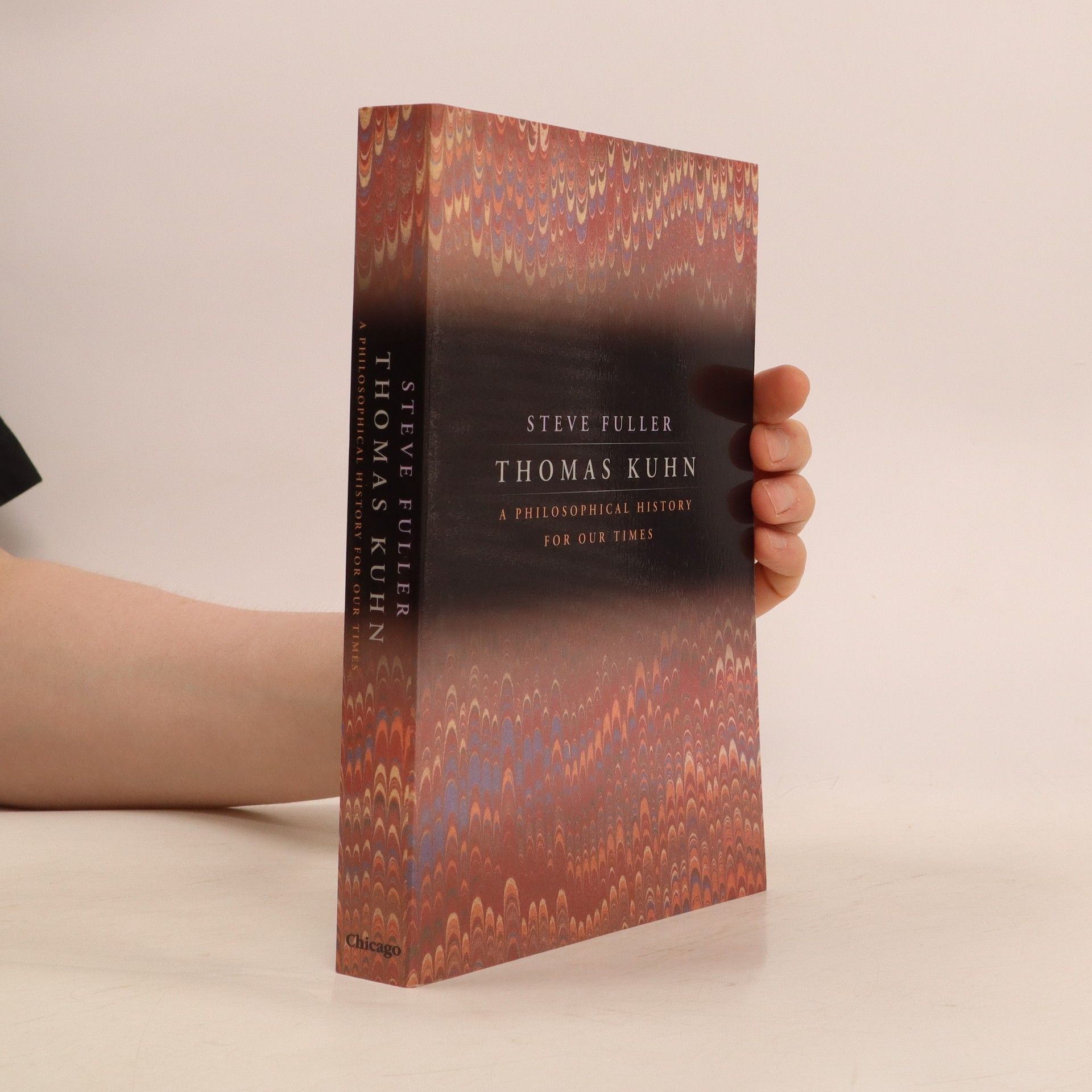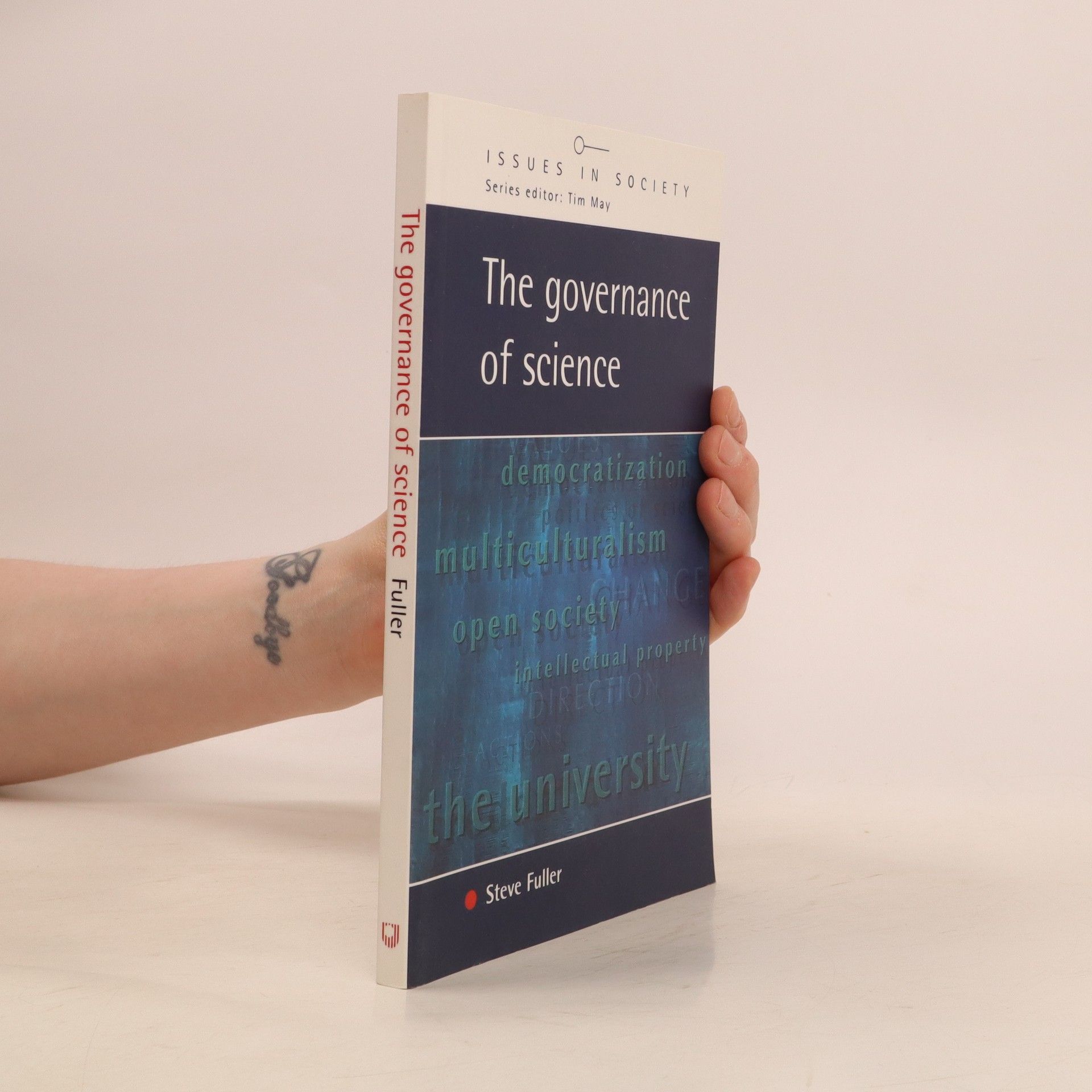Exploring the necessity of universities in modern society, this volume argues for a revival of Wilhelm von Humboldt's vision, which positioned universities as key institutions of Enlightenment. It highlights the challenges posed by contemporary views on academic disciplines and nation-states, while emphasizing the enduring relevance of Humboldt's ideals. The book examines the interconnected roles of research and teaching, advocating for a model where academics serve as exemplars of critical judgment and free expression. Its seven chapters delve into the historical and philosophical implications of this vision.
Steve Fuller Book order (chronological)
Steve Fuller is a pivotal figure in the field of social epistemology, exploring the intricate relationship between knowledge and society. His work delves into the future of humanity, examining potential transformations and the trajectory of human progress. Fuller investigates how societal structures and scientific advancement shape our understanding of the world and our collective destiny. His approach is marked by its interdisciplinary nature and a critical engagement with contemporary developments.






Philosophy of Science and Its Discontents
- 188 pages
- 7 hours of reading
The merging of philosophy of science with the sociology of scientific knowledge marks a significant advancement in understanding scientific practices. This textbook serves as the first comprehensive resource to explore this integration, offering insights into how social contexts influence scientific inquiry and knowledge production. It is designed to provide readers with a foundational understanding of these interconnected fields.
A Player’s Guide to the Post-Truth The Name of the Game presents sixteen short, readable chapters designed to leverage our post-truth condition’s deep historical and philosophical roots into opportunities for unprecedented innovation and change. Fuller offers a bracing, proactive and hopeful vision against the tendency to demonize post-truth as the realm of ‘fake news’ and ‘bullshit’. Where others see threats to the established order, Fuller sees opportunities to overturn it. This theme is pursued across many domains, including politics, religion, the economy, the law, public relations, journalism, the performing arts and academia, not least academic science. The red thread running through Fuller’s treatment is that these domains are games that cannot be easily won unless one can determine the terms of engagement, which is to say, the ‘name of the game’. This involves the exercise of ‘modal power’, which is the capacity to manipulate what people think is possible. Once the ‘necessarily’ true appears to be only ‘contingently’ so, then the future suddenly becomes a more open space for action. This was what frightened Plato about the alternative realities persuasively portrayed by playwrights in ancient Athens. Nevertheless, Fuller believes that it should be embraced by denizens of today’s post-truth condition.
The Knowledge Book
Key Concepts in Philosophy, Science and Culture
A lively and engaging book that provides sharp and insightful overviews of some of the most important concepts and terms on the cultural and philosophical aspects of knowledge. An essential reference.
""One of the freshest books that I have read in a long time. It will shake you up. You will not always agree with Fuller, but he will force you to rethink some of your pet conceptions about how science works."" --Isis This is the book that launched the research program of social epistemology, which has fueled imaginations and provoked debates across many disciplines around the world. Its opening question remains as pressing as ever: How should knowledge production be organized? The second edition contains a substantial new introduction, in which Steve Fuller reflects on social epistemology's place in the history of analytic and continental epistemology and discusses the inspiration he has drawn from a wide variety of fields in the humanities and social sciences. It also includes a spirited attack on alternative philosophical groundings for social epistemology and a detailed response to the standard criticism that social epistemology has received from realist philosophers and natural scientists during the ""Science Wars."" In its new edition, the book remains a provocative contribution to the debate on the production, dissemination, and interpretation of knowledge in the sciences.
Thomas Kuhn
- 490 pages
- 18 hours of reading
This work discusses whether Kuhn's The Structure of Scientific Revolutions was revolutionary. Steve Fuller argues that Kuhn held a profoundly conservative view of science and how one ought to study its history.
The Governance Of Science
- 167 pages
- 6 hours of reading
What does social and political theory have to say about the role of science in society? Do scientists and other professional enquirers have an unlimited 'right to be wrong'? What are the implications of capitalism and multiculturalism for the future of the university? This ground-breaking text offers a fresh perspective on the governance of science from the standpoint of social and political theory. Science has often been seen as the only institution that embodies the elusive democratic ideal of the 'open society'. Yet, science remains an elite activity that commands much more public trust than understanding, even though science has become increasingly entangled with larger political and economic issues. Fuller proceeds by rejecting liberal and communitarian ideologies of science, in favor of a 'republican' approach centred on 'the right to be wrong'. He shows how the recent scaling up of scientific activity has undermined the republican ideal. The centrepiece of the book, a social history of the struggle to render the university a 'republic of science' focuses on the potential challenges posed by multiculturalism and capitalism. Finally, drawing on the science policy of the US New Deal, Fuller proposes nothing short of a new social contract for 'secularizing' science.
Science
- 144 pages
- 6 hours of reading
In this introduction to science Steve Fuller argues that if the various scientific disciplines share anything at all, it is more likely to be the way they strategically misinterpret their own history than any privileged access to the nature of reality.